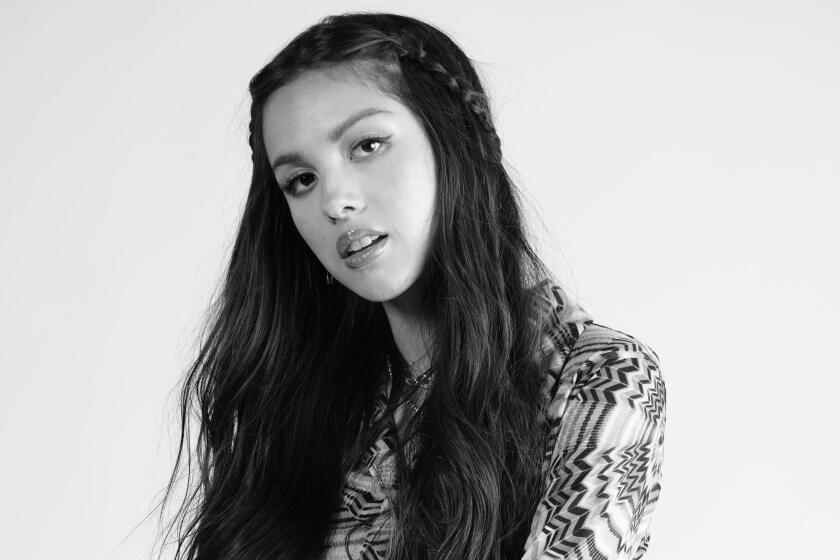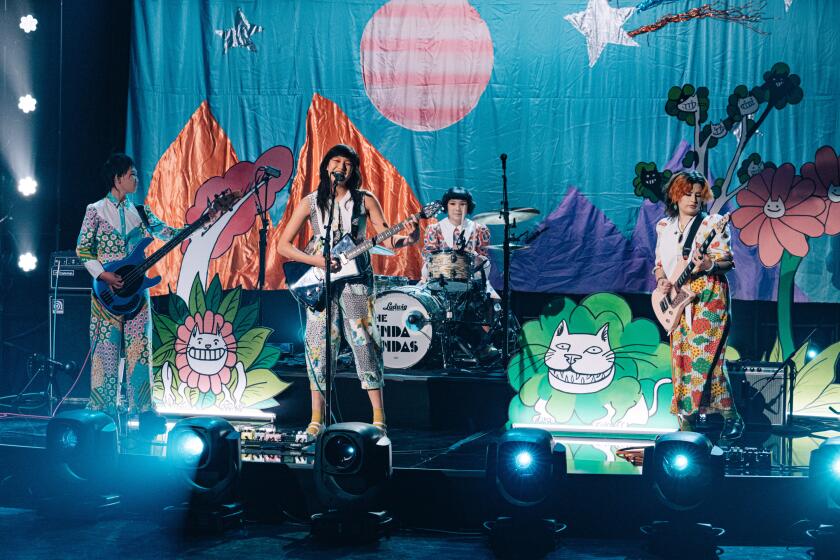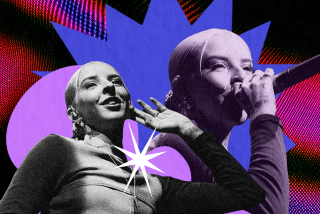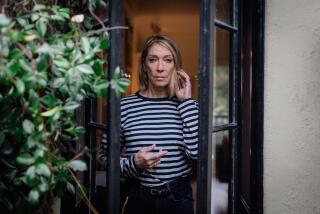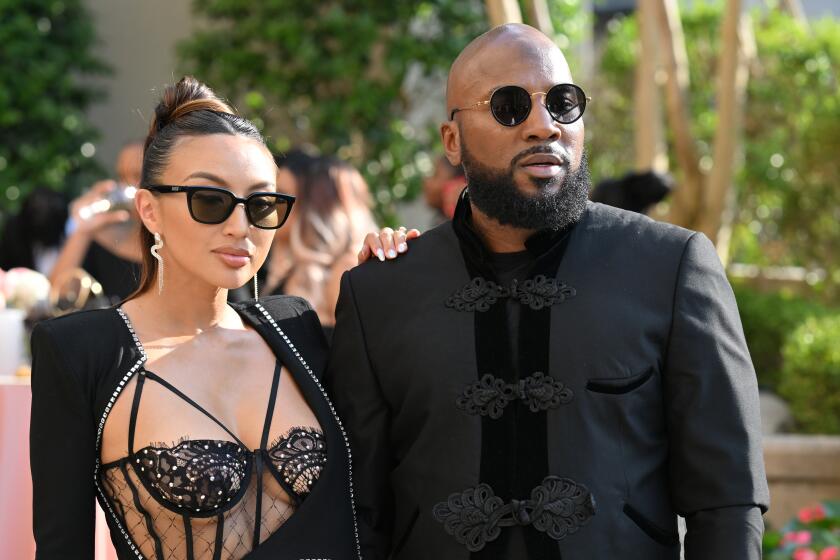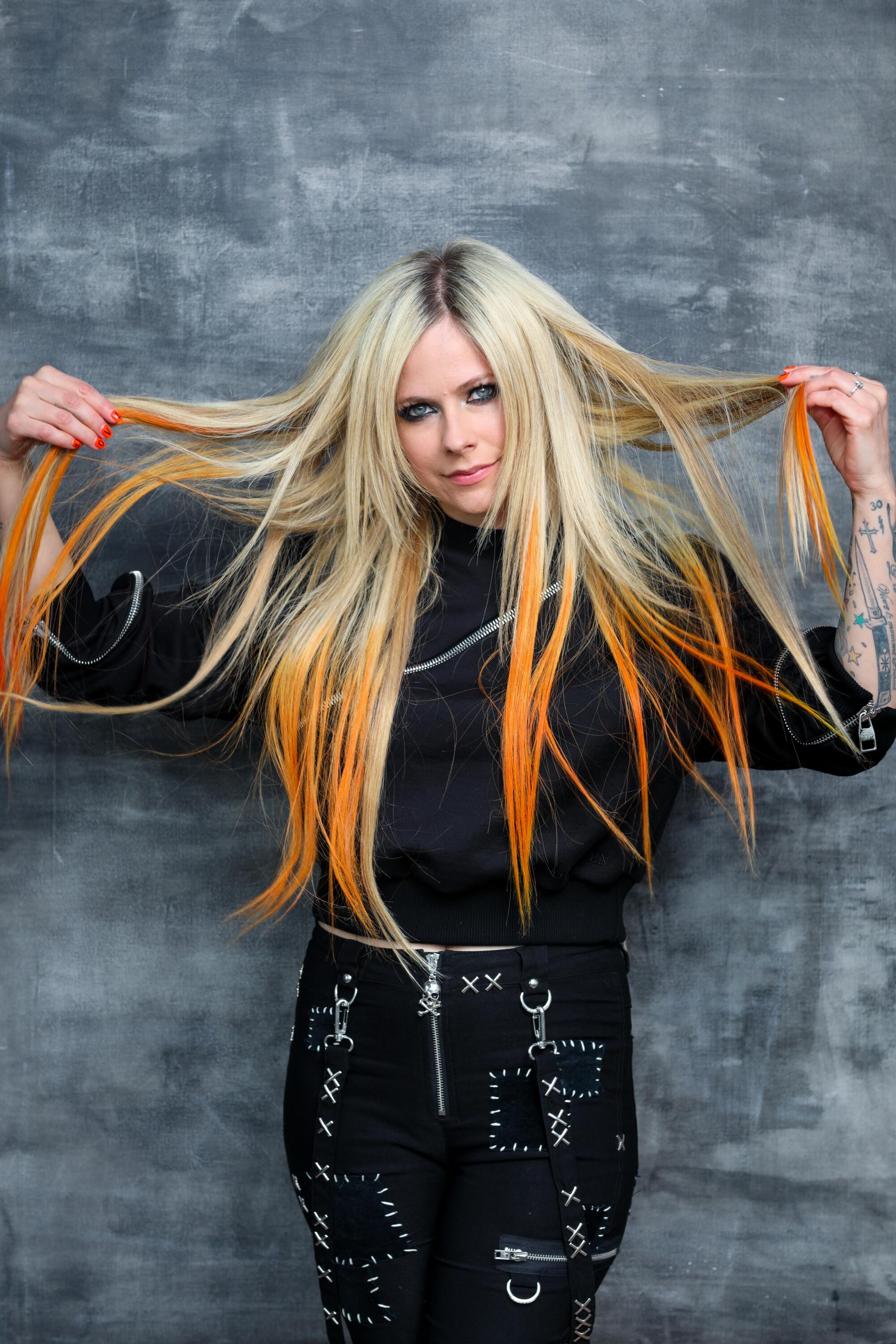
Perched in a chair in her home Zoom studio, Avril Lavigne could easily fool you into thinking it’s 2002 again. Still rocking her signature smoky eyeliner and blond highlights — currently with a hint of orange ombre — on the surface, the singer is nearly identical to the 17-year-old who crashed malls and ripped some guy’s preppy clothes off. Look a little more closely, though, and you’ll see that her reality is a lot different these days.
Now 37, Lavigne’s once bare arms are covered in roughly 30 tattoos (she’s lost count). “My first tattoo was the ‘Sk8er Boi’ star,” she recalls, flaunting her wrist ink. “I think I was 18.” Now, it’s become a half-sleeve tied together with roses. She may have traded the skate park for sipping coffee and getting a tan at her home in Malibu, but Lavigne — tattoos and all — is just as rebellious as she ever was. Nearly 20 years since the release of her debut album, “Let Go,” she’s going full-throttle back to her roots with her seventh studio album, “Love Sux,” set for release Friday. And her timing couldn’t be more perfect.
It’s no secret that throughout the past two years, pop-punk — the genre that melds angsty riffs, sticky pop melodies and distorted guitar chords pioneered by 1970s acts like the Ramones and Buzzcocks — has experienced a revival with artists like Olivia Rodrigo, Machine Gun Kelly and Willow. But nearly 20 years ago, Lavigne was its queen, and her presence was affirming for young women who were part of a community heavily dominated by white men. There were parts of that scene Lavigne evaded — like Warped Tour, for instance — because her debut record exploded during that time and, she says, “it superseded any real opportunity to be a part of that world, despite my music fitting into it.” But she’s happy to see things are more balanced now. “I root for girls like Billie [Eilish], Willow and Olivia,” she says, “and I love knowing that they’ve got bright futures ahead.”

Lavigne, along with artists like Paramore’s Hayley Williams, Fefe Dobson and the Veronicas, was pivotal in laying the groundwork for the more diverse and dynamic cohort of performers who are redefining the alternative scene today. “It’s nice to see that this genre of music is really being appreciated right now,” she says. “People are rediscovering old bands, and the newer generation is getting into rock music.”
Growing up in rural Ontario, Lavigne was raised in a strict Christian household and began performing at an early age in church choirs. At 14, she landed a manager after playing a gig at a bookstore and won a contest where she performed a duet with Shania Twain. By 16, she dropped out of school and relocated to the U.S., where she signed her first record deal. But it was in 2002 at the age of 17 that she shook up the mainstream with “Complicated,” an angsty anthem about posers, and the iconic “Sk8er Boi,” a star-crossed tale that took on high school hierarchy. Later that year, she released her album, “Let Go,” which debuted at No. 8 on the Billboard 200 chart and quickly solidified her status as a teen idol. “I think the press was more intense and more critical back then, and everything was happening on such a large scale,” she recalls. “It was a little tough the first couple records for me.”

In the years that followed, the Canadian singer toyed with a more commercial pop sound, stripped-down acoustic songs and ballads, usually with a hint of defiance nestled into her records. While she was building her career, Lavigne fell in and out of love — she married and divorced Sum 41 bandleader Deryck Whibley and later Nickelback’s Chad Kroeger. In 2014, Lavigne began having health issues and was diagnosed with Lyme disease. She took a six-year gap between records while recovering and reemerged with 2019’s “Head Above Water,” which was brimming with sweeping ballads and intimate pop tracks. “The last album is introspective, serious, deep, dark and f— heavy,” she says. “I went through some s—.”

In early 2021, “Flames” — a collaboration with Lavigne’s boyfriend, Derek Ryan Smith (a.k.a. musician Mod Sun), whom she began dating around that time and currently lives with — seemed to hint at a possible sonic shift for the singer. “We fell in love through being in the studio together, which for me is the greatest gift that I could have in a relationship,” says Smith of their experience together. “We’re both so focused on art and creativity that we wake up in the middle of the night with a song idea in our heads, and we support each other through that.”
Just a few months later, she was featured on Willow’s empowerment anthem “G R O W.” By November, Lavigne not only announced she had signed to drummer, hip-hop collaborator and former reality star Travis Barker’s label, DTA Records, but she also shared “Bite Me,” a sticky kiss-off that harked back to the singer’s debut and would become the lead single from “Love Sux.”
Before signing to DTA, Lavigne was working on “Love Sux” without a label, manager, deadlines or anyone else’s opinions. She began writing with Barker in November 2020, when they created their first song for the album, “F.U.,” with ease. When the drummer brought up signing her to his label, it just made sense. “I’ve had a long career, and so has he with Blink-182,” says Lavigne. “We’ve been through all the same stuff, so he really has an understanding of me as an artist.”
That same month she met Smith, who introduced her to John Feldmann, producer and bandleader of ska-punk outfit Goldfinger. “My experience with Avril was unbelievable,” Feldmann says. “Her voice is incredible — her pitch, her tone.”

The trio instantly clicked. “I felt like I was hanging out with people that I would have gone to high school with,” she says. “We would write a song in a day, have it recorded, and by the time I was walking out, it was done.” The tracks on “Love Sux” also pair pop-punk stalwarts and the genre’s new generation as Lavigne collaborates with Blink-182’s Barker and Mark Hoppus, as well as Kelly and singer-songwriter Blackbear.
For Lavigne, the decision for the tonal shift of “Love Sux” surfaced when one of her tours tied to “Head Above Water” was canceled because of the pandemic. With her free time, she came to realize how much she loved playing live shows and how integral that “energy” was for her sound. “When I made this record, I really was thinking about playing the songs live and about the people that come to my shows,” she says. “My shows are so fun for me, and the audience is always going wild.”
When it came to the subject matter, Lavigne was ready to focus on something a little different than her last LP: love. “I had come to this place where I was also going through a breakup or two again and was feeling exhausted and over it,” she says. “I was like, ‘I need a break from relationships with men. I need to just take care of myself.’” She found the journey of reflecting on love and failed relationships “emotional” but “way lighter.”
Throughout the record’s 12 tracks, Lavigne fuses the recognizable, angsty ethos from “Let Go” with more polished production. Blistering tracks like “Cannonball,” “Bois Lie” — an homage to “Sk8er Boi” (“I couldn’t not,” she says) — and “Avalanche” are bursting with Lavigne’s striking runs, spunky one-liners and the rush that made listeners become fans of her work from the get-go. It’s what makes “Love Sux” both nostalgic and of the moment.
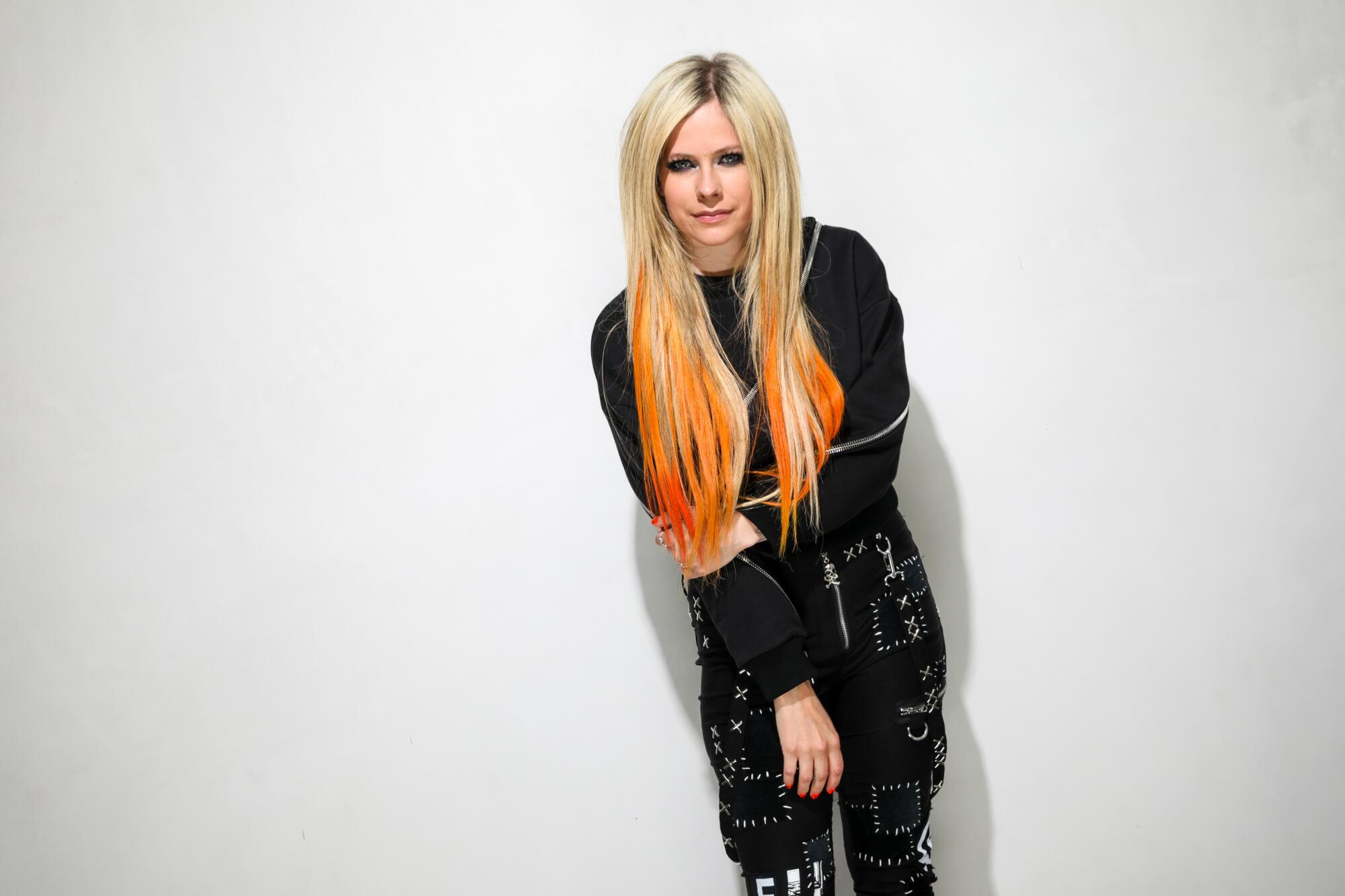
“We’re seeing the resurgence of alternative music and pop-punk music right now, and she’s the queen of that,” says Smith.
“This is the music that, as I was finding myself, really moved me,” says Lavigne, “and helped shape and influence who I am today.” The past has been on Lavigne’s mind for other reasons too. In December, the singer revealed she would be adapting “Sk8er Boi” into a film, some good news for fans just ahead of the album’s 20th anniversary this June. At the moment, she’s keeping busy writing the script when she’s not focusing on her clothing line, Abbey Dawn, or her album release.
Despite the title of Lavigne’s forthcoming record, she hasn’t given up hope for love just yet. Her perspective on it, though, has changed. “At this point in my life, it’s harder for me to let somebody in all the way,” she says. “I’m definitely capable of it, but I have to feel confident in it and trusting of it.” For her, it’s “scary.”
“Early on in my life, I would always fall so deep in love and just be like, ‘This is it,’ and that’s so beautiful. I don’t know if I’ll ever feel that way again,” she says with a laugh. For now, she’s just trusting the process.
More to Read
The biggest entertainment stories
Get our big stories about Hollywood, film, television, music, arts, culture and more right in your inbox as soon as they publish.
You may occasionally receive promotional content from the Los Angeles Times.
